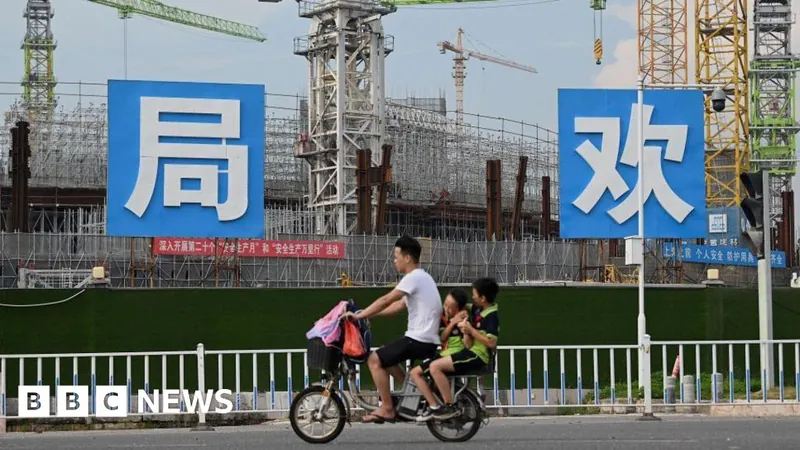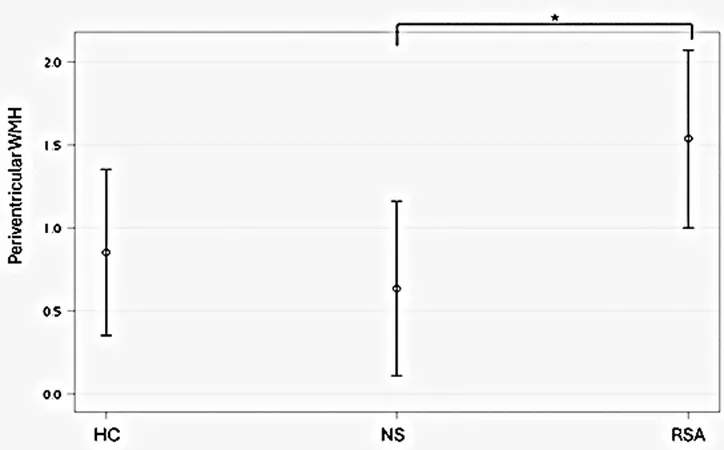
Evergrande's Collapse: Why You Should Be Paying Attention
2025-08-25
Author: Jacques
Evergrande’s Tumultuous Journey
The crisis surrounding Evergrande, once a titan of the Chinese property market, has reached a dramatic new peak. Recently, the Hong Kong stock exchange removed its shares entirely after a January 2024 court ruling mandated the company’s dissolution, marking a chilling turn for this once-thriving giant.
A Troubling Timeline
The downward spiral began in 2021 when Evergrande failed to meet a critical debt repayment. Fast forward to March 2024, and its founder, Hui Ka Yan, found himself $6.5 million poorer and permanently barred from China’s capital market due to the company's staggering overstatement of its revenue by $78 billion.
What Does Evergrande Do?
Founded in 1996, Evergrande, originally the Hengda Group, has ballooned into a diversified empire. At its peak, it managed around 1,300 projects across 280 cities in China and expanded its reach into wealth management, electric vehicles, and even owned a controlling stake in the celebrated Guangzhou FC football club. Hui Ka Yan, once lauded as Asia’s richest individual with a fortune of $42.5 billion, saw his wealth vanish amid Evergrande's turmoil.
The Root of the Crisis
Evergrande’s saga of trouble can be traced back to its aggressive expansion, driven by over $300 billion in debt. But in 2020, the Chinese government imposed new regulations to cap borrowing among real estate developers. This led Evergrande to slash property prices drastically in a bid to generate cash flow, further crippling its ability to meet debt obligations.
The Economic Fallout
Why should you care? Evergrande’s collapse has severe implications for the entire Chinese economy. Real estate once fueled about a third of China’s GDP, serving as a critical growth engine and revenue source for local governments. The current property crisis has led to slashed investments and funding within real estate, rippling out to affect banking and construction sectors—key pillars of employment. Everyday Chinese families are feeling the squeeze too, with many having invested their life savings in Evergrande properties.
What's Next for the Chinese Economy?
As Beijing grapples with these challenges, consumer spending remains under pressure—a crucial factor for reigniting economic growth. The Evergrande disaster highlights a stark reality not just for investors, but for all citizens watching an essential sector of their economy crumble.









 Brasil (PT)
Brasil (PT)
 Canada (EN)
Canada (EN)
 Chile (ES)
Chile (ES)
 Česko (CS)
Česko (CS)
 대한민국 (KO)
대한민국 (KO)
 España (ES)
España (ES)
 France (FR)
France (FR)
 Hong Kong (EN)
Hong Kong (EN)
 Italia (IT)
Italia (IT)
 日本 (JA)
日本 (JA)
 Magyarország (HU)
Magyarország (HU)
 Norge (NO)
Norge (NO)
 Polska (PL)
Polska (PL)
 Schweiz (DE)
Schweiz (DE)
 Singapore (EN)
Singapore (EN)
 Sverige (SV)
Sverige (SV)
 Suomi (FI)
Suomi (FI)
 Türkiye (TR)
Türkiye (TR)
 الإمارات العربية المتحدة (AR)
الإمارات العربية المتحدة (AR)